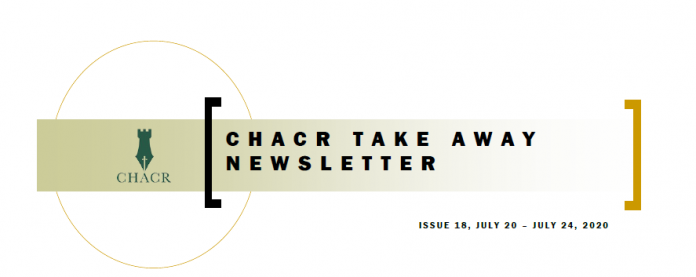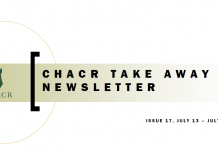This is the 18th issue of the weekly CHACR Take Away newsletter. In these newsletters, you will find links to the latest products by the CHACR, but also links to key reports and studies by external experts and institutions which we think you should pay attention to.
A Word From The Director
For over five years, on and off, I was on the staff at the JSCSC and witnessed heaven knows how many operational and strategic estimates being turned out by legions of highly capable officers and civil servants attending either ACSC or HCSC. ‘Centre of Gravity analysis’ was always an interesting part of the estimate from my point of view; for two reasons: one, regardless of the very structured JSCSC teaching of the subject, views on what to analyse and how to analyse it varied wildly from student to student and course to course; two, because regardless of this variety of approaches, in pretty much every strategic or operational campaign estimate that I witnessed, ‘public support’, or ‘public opinion’, or ‘democratic support’, or something of that ilk seemed to be the common answer to the question “what is our own strategic centre of gravity?”.
So if it is a ‘no-brainer’ that the strategic well-being of any national endeavour, in a democracy, depends upon the population supporting the efforts of its government, how does a free-thinking nation resolve the apparent tension between the strategic necessity to get one’s population onside and the basic value of letting people make up their own minds, un-interfered with by government? How does one balance ‘propaganda’ against ‘truth’, ‘information operations’ against information provision, or a free press and open inter-personal channels of communication and view-sharing with an apparent requirement to generate strategic support for national endeavours? The blunt instrument solution, if it works, would suggest that a Russian or Chinese approach (or, even, a North Korean approach!) to public opinion-forming is a wiser approach than our own. And yet the very foundations of our way of life are based upon the right to have access to as much ‘truth’ as we can find and to form our own opinions, and voice them freely thereafter. And to have the ability to remove those responsible with directing our national efforts if we decide, periodically, that they are not measuring up.
This then is the trickiest of paradoxes for any democratic government to negotiate. It’s devilishly difficult to resolve, even in its simplest form. But it gets very much more difficult when you realise that the wide-open modern world now allows those who play by a very different set of rules to enjoy free access to our game board. It allows them to play in our game, uninvited, but by their rules. That is a strategic problem on a whole new scale…..
Maj Gen (Ret) Dr Andrew Sharpe





